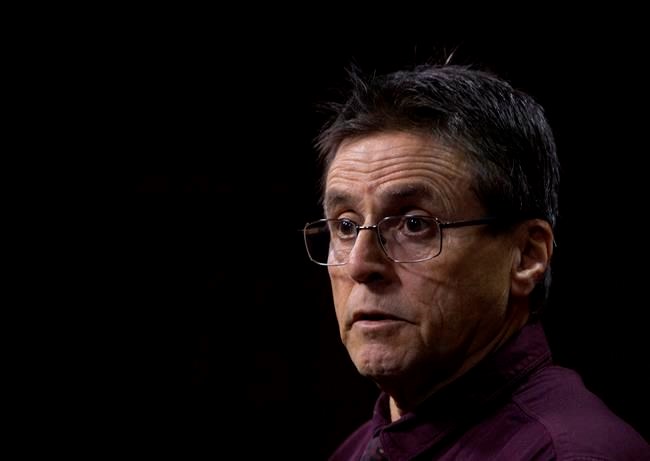OTTAWA — A lawyer for Hassan Diab says a French appeal court's order that the Ottawa sociology professor stand trial for a decades-old synagogue bombing is the latest misstep in a long odyssey of injustice.
Donald Bayne told a news conference Wednesday the decision delivered in Paris "flies in the face of the existing evidence," and he suggested French authorities are making Diab a scapegoat.
"A demonstrably innocent man and his family have been enduring this nightmare for 10 years now," Bayne said.
"He's going to be dragged through a future of uncertainty while for political reasons this case marches on in France."
Diab's lawyers in Paris said they would contest the court decision.
Bayne also pledged to continue pleading Diab's innocence and did not rule out asking the Trudeau government to intervene. "I'm going to consider all legitimate avenues in protecting my client."
Born in Lebanon, Diab became a Canadian citizen in 1993, working in Ottawa as a university teacher.
The RCMP arrested him in November 2008 in response to a request by France. French authorities suspected Diab was involved in the 1980 bombing of a Paris synagogue that killed four people and injured dozens of others, an accusation he has always denied.
After drawn-out proceedings that went all the way to the Supreme Court of Canada, Diab was extradited to France, where he spent three years behind bars, including time in solitary confinement.
In January 2018, French judges dismissed the allegations against him for lack of evidence and ordered his immediate release.
The ruling allowed Diab, now 67, to return to his wife and young children in Ottawa and await the appeal court decision.
Diab’s supporters have long argued he was in Beirut — not Paris — when the attack took place and that his fingerprints, palmprints, physical description and age did not match those of the suspect identified in 1980.
Bayne called the ruling handed down Wednesday "a travesty of justice," saying the latest analysis of handwriting evidence in the case makes the argument for pursuing Diab even weaker.
Early last year, Diab filed a lawsuit accusing the Canadian government of negligent investigation and malicious prosecution, saying federal officials violated his constitutional guarantees of freedom of movement, liberty and security of the person.
The statement of claim contends the government withheld crucial fingerprint evidence before his extradition hearing, which Diab says affected the outcome.
An external review of Diab's extradition case for the Canadian government concluded that federal lawyers who worked on the file "acted in a manner that was ethical and consistent" with law and policy.
Diab has rejected the report as a "whitewash exercise."
Amnesty International Canada and the British Columbia Civil Liberties Association are among the many groups that have called for a public inquiry into the Diab case and a review of Canada's extradition system.
Alex Neve, former secretary-general of Amnesty International Canada, said at the news conference the French court decision was "beyond disappointing."
"It is in fact devastating to learn that rather than ending injustice, the French appeal court has opted to extend injustice," Neve said, adding "the insistence by French authorities on pursuing Hassan Diab has been cruel and baffling."
Neve said the Canadian government must become involved at the highest political levels and not simply stand aside on the grounds that justice must be allowed to run its course.
Dalhousie University law professor Rob Currie, who also took part in the news conference, said "it's really long past time that the government looked at reforming our extradition process, which saw the extradition of Mr. Diab to France in this very questionable case."
The office of Justice Minister David Lametti said officials would carefully review the latest court decision "to determine if there are any implications for Canada at this stage."
"It would not be appropriate to provide further comment as the domestic proceedings in France remain ongoing.”
This report by The Canadian Press was first published Jan. 27, 2021.
— With files from The Associated Press
Jim Bronskill, The Canadian Press



